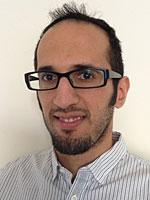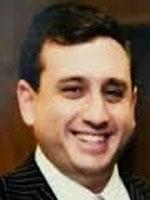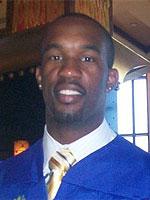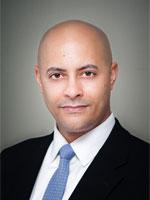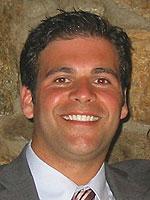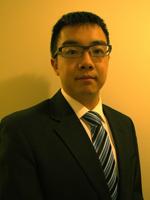
Master of Health Administration
Students and Alumni
- Home
- MHA - Master of Health Administration
- Students and Alumni
Raven Brewington, '19
Raven A. Brewington is currently an Administrative Fellow at Mayo Clinic in Phoenix Arizona. She most recently served as an Epic Ambulatory Analyst at Weill Cornell Medicine/ NewYork-Presbyterian, an 862-bed medical center providing emergency, primary, and specialty care in across New York City. Raven worked on various optimization, implementation and operational projects across the EpicTogether enterprise which recently includes Columbia Doctors, NYP Lawrence, NYP Westchester, and NYP Queens. She joined Weill Cornell Medicine in 2016 right after graduating with a Bachelor’s of Science from Temple University. Raven quickly transitioned from frontline staff and learned the ins-and-outs of scheduling outpatient visits, registration, referrals, reimbursement, prior authorizations, scheduling surgery, and a host of other skills that led her to begin covering providers across the multi-specialty provider OBGYN practices at the institution. She soon discovered her interest in information systems and the ability to improve clinical documentation workflows. Since then she has become Epic certified in both outpatient and inpatient modules. As a multiple scholarship recipient, Raven has served in various leadership capacities for the National Association of Health Services Executives (NAHSE) New York Regional Chapter and is a member of Healthcare Leaders of New York Chapter of the American College of Health Care Executives (ACHE). Raven holds a Master of Health Administration (‘19) and a Master of Public Health (‘20) from Hofstra University.
What made you decide to go into healthcare?
I can still remember my favorite class just before graduation at Temple University where we learned about Current Procedural Terminology (CPT) codes, budgets, strategic planning, and facility operations. This course not only excited me, but drove me to my first position as a Senior Patient Coordinator at Weill Cornell Medicine. Eventually I then saw the inequity that women and mothers often experienced which impacted their health and caused complications during childbirth. I ultimately wanted to see the administrators of hospitals reflect the patient populations they serve in order to better advocate and improve health outcomes for all.
What do you like to do for fun?
Fun before and during the pandemic has definitely changed! I have always enjoyed drawing and painting, trying new restaurants, and traveling. Nowadays, spending quality time with my family and practicing self care has been the most rewarding and time well spent this past year.
What influenced your decision to select Hofstra for your Master's Degree in Healthcare Administration?
Falling in love with my first official job in healthcare exposed me to leaders that had work experience and knowledge that I only dreamed of. Many of the administrators and family friends I had highly recommended Hofstra's MHA program. I applied in hopes that I could join the amazing alumni and be a catalyst for change, enrolling in graduate school at Hofstra University has heightened my knowledge and skills to do just that. I have met countless professors and classmates that have motivated me and consistently teach how to be a better leader in healthcare. I am forever grateful for the lifelong mentorship gained through this program.
Areeba Khan, '18
Areeba Khan is a business development and marketing Project Manager at Northwell Health Labs. She leads and carries out project management responsibilities for Northwell Health Lab strategic partnerships with Kaleida Health, Cold Spring Harbor Laboratory, Wellbridge Addiction Treatment and Research, and others. She oversees marketing projects that involve key stakeholders from corporate marketing, labs sales, and clinical team members from the sales team to develop client and patient facing materials. Areeba is serving as a Co-Chair for Northwell Health’s Bridges Cultural Ambassadors Business Employee Resource Group (BERG) to develop and support various business impact, community, and workplace events. Prior to her current role, Areeba worked at CareConnect Health Insurance Company as a Care Support Specialist where she helped patients obtain prior-authorization requests to obtain various health services including imaging, pharmacy, surgery, and more. Areeba earned her Master’s in Health Administration from Hofstra University in 2018.
What made you decide to go into healthcare?
There are many areas of opportunity to improve the patient’s experience and understanding of various health services that are provided. Healthcare is constantly evolving and growing which is what intrigued me to go into healthcare.
What do you like to do for fun?
I love exploring the city or baking new desserts with my family or friends at home!
What influenced your decision to select Hofstra for your Master's Degree in Healthcare Administration?
Hofstra University’s MHA program is unique because of their culture and the insightful faculty members who that provide a variety of perspectives working in different sectors in healthcare. The professors have been tremendously supportive towards students and alumni in helping them succeed. I’m truly grateful for my experience at Hofstra University’s MHA program.
Elyssa Guarnieri, '20
Elyssa R. Guarnieri is the Project Manager at Gracie Square Hospital, a 133-bed inpatient mental healthcare institution in the Upper East Side of Manhattan. She is a profound energetic leader with a proven record of accomplishment in project management and hospital operations. She is working collaboratively with various departments in her current role at Gracie Square to ensure a safe environment, provide positive patient experience and guide projects that will transform the way behavioral health is delivered. Elyssa graduated the MHA program at Hofstra University in May 2020 and began working at Gracie Square Hospital in June 2020. Determined and persistent on finding a position during a pandemic came with challenges but ones that made a young healthcare professional realize how important it was to adapt to the current needs of the healthcare world. Prior to her position at Gracie Square, she held two different internships at Northwell Health Physician Partners and Long Island Jewish Medical Center, an academic hospital within the Northwell Health system. Both internships provided Elyssa with the foundation of knowledge and experience she needed to begin her work in healthcare field.
What made you decide to go into healthcare?
I went into healthcare because I simply wanted to help others. At a young age I had a personal experience with a family member who underwent surgeries, countless doctors’ appointments and therapy sessions. It was then I quickly realized that I wanted to be on the other side helping patients receive the best care they possibly can and put a smile on their faces.
What do you like to do for fun?
I enjoy going to the beach, playing with my 3-year-old niece and running to great music (preferably country).
Why did you join the Hofstra MHAAA?
I joined the Hofstra MHAAA because I wanted to keep in touch with my colleagues as well as network with other graduates from the MHA program and hear about some of the amazing work they do in the healthcare field.
Brittany Foster, '17
Brittany Foster is the Administrator for the NYU Langone Medical Center and the Department of Orthopedics at TJH Medical Services, a physician group network that is affiliated with Jamaica Hospital Medical Center. She oversees 12 clinical and administrative personnel staff. Brittany is responsible for daily operations for 3 surgical practices, leading executive projects, and the oversight of a multidisciplinary patient care team.
Brittany earned her undergraduate degree at Dowling College with a degree in Psychology. In 2017, she graduated from Hofstra University with a Master of Health Administration. Brittany has been an active Healthcare Leaders of New York (HLNY) member since 2015. She served as the Co-Chair for the Programs Committee from 2018-2020, and is currently the Chair for the Marketing Committee.
What made you decide to pursue healthcare?
Once I graduated with my bachelor’s in psychology, I knew I wanted to pursue a career in which I can help others. I originally was interested in becoming a Mental Health Counselor but decided to take some time to explore my other options. I came across Hofstra's MHA program and thought it sounded very interesting, so I applied for the program. Healthcare is constantly changing and there's always something new to learn, which is what also intrigued me to go into healthcare.
What influenced your decision to select Hofstra for your Master of Health Administration?
At the time, I worked right by Hofstra University. I received an email about an open house so I decided to attend. Dr. Edward Coffield, who is the director of the program, went through the program, the different courses, and the opportunities. The way he spoke about the program really inspired me to apply. I spoke with him after the Open House was over and applied the next day.
Bernard Robinson '19
Bernard Robinson MHA, EMT-P is a Director of Operations for Northwell Health's Center for Emergency Medical Services. He oversees the daily operation of one of the largest EMS agencies on the east coast with a staff of over 1000 EMT's and Paramedics that handles over 175,000 responses a year.
An EMS professional for more than 30 years, Mr. Robinson serves on the health system's Opioid Management Steering Committee (OSMC) and as the director of his department's Explorer Post in which the EMTs and Paramedics mentor and train high school students.
Mr. Robinson currently sits on the National Registry of EMT's and Paramedic's (NREMT) taskforce for Inclusion, Diversity, Equity and Access (IDEA). He holds a bachelor's degree from Adelphi University and a master's degree in Healthcare Administration from Hofstra University.
- What made you decide to go into healthcare?
My father is a retired EMS Lieutenant. Since I can remember, I was always looking through his medical textbooks. I was fascinated with medicine, specifically emergency medicine. After graduating high school, my father enrolled me in an EMT class. Once I started responding to emergencies, I knew I was in the right field. It was my destiny. - What do you like to do for fun?
I am a beach bum, so traveling and seeing the beaches of the world brings me joy. I also love to cook and spend time with my family. There's always something happening at the Robinson house! - What is the best advice you ever received?
Believe in yourself. It's easy to become discouraged and give up on pursuing your dreams. But if you believe you can succeed, nothing or no one's opinions can stop you. - What influenced your decision to select Hofstra for your Master's Degree in Healthcare Administration?
I attended an open house at Hofstra, and the MHA team was incredibly helpful and friendly. I met Professor Walter Markowitz at that event, who has since become my friend and mentor. Attending the MHA program was a defining moment in my career. It's a game changer!
Read more successful alumni stories
Suliman Alghnam, '08
Master of Health Administration
Riyadh, Saudi Arabia
Congratulations on receiving your PhD from the University of Wisconsin-Madison! Tell us more about your long-term professional goals and how your experience in the Hofstra University Master of Health Administration program helped shape them.
My long-term professional goal is to work in academia to teach and mentor students. I think my early experience with Dr. David Weiss in Hofstra's MHA program planted this seed. His unique teaching style made me not only a better student, but always thirsty for new knowledge and to help others. I think Hofstra helped me become more motivated to learn about health care, and my great experience there played a major role in my decision to pursue doctoral studies.
What led you to be interested in health administration?
I was always interested in health care quality and outcomes. After working as a physical therapist for a while, I wanted to pursue areas where I can make a greater impact in improving health outcomes and quality. Health administration has a wide range of areas that provide substantial contribution to improve services provided to patients, so it made perfect sense to make this career choice.
What attracted you to Hofstra’s MHA program?
Besides being on the East Coast where I wanted to be, the campus facilities and services were major reasons why I picked Hofstra. Additionally, the MHA program offers many learning opportunities within those areas, which made me feel that it was the right fit for me.
Tell us about your internship experience.
I was fortunate to do my internship at New York-Presbyterian Hospital in Manhattan. It was such an amazing experience, and it was the perfect finale for my time as a student in the MHA program. I must acknowledge that without Hofstra’s good relationships with healthcare institutions, I wouldn’t have been able to do my internship at such a prestigious institution. I was able to learn about many topics and challenges in the workplace. I hope that I made a good impression so that Hofstra continues to have a good relationship with this institution for future interns.
Describe your experience working and studying with faculty within the department.
I loved studying in our campus library because it provided the perfect environment to study and was conveniently close to the food court and where I used to work. I worked during my time at Hofstra as a graduate assistant for the dean of the School of Health Science. It was wonderful to work within our department and get close to the staff and faculty.
What advice would you give others considering the program at Hofstra?
I recommend getting more involved with fellow students and faculty members to build a strong network of health care professionals that thrive to improve our profession. Many students come to the program with different backgrounds; together, they can learn from each other.
Abiola Adeyemi ’16
Master of Health Administration
Lagos, Nigeria
Tell us about your background and what led you to be interested in the field of Health Administration.
Having earned my bachelor’s in economics and a Master of Arts in International Economics and Finance, and after serious research, I stumbled upon the health administration program. I have always had a strong interest in the healthcare industry and with my background in business, health administration was the perfect fit for me.
What attracted you to Hofstra University’s MHA program?
The most important thing that attracted me to Hofstra University’s MHA program is the faculty. All faculty members are experienced in the field and provide real-life cases, examples, and experience to the students.
Tell us about your relevant experiences outside of the classroom.
Currently, I am working at Bronx-Lebanon Hospital Center. This experience is giving me the opportunity to learn first-hand what goes on in the hospital system. Here, I am working with the heads of the various departments to improve patient experience at the hospital centers in the NY state Delivery System Reform Incentive Payment (DSRIP) program.
Describe your experience working and studying with faculty within the department.
Working and studying with faculty within the department has been a wonderful experience. Because the faculty is experienced and work in hospitals, they are able to give real-life examples to students. More importantly, they are very approachable and provide assistance with job searches, résumés, and interviews.
What are your long-term professional goals and how will the program help you reach them?
Over the long term, I would like to run a hospital system, probably as the Chief Financial Officer (CFO). The faculty is very helpful in providing guidance to help me achieve my professional goals.
What is your advice for prospective students looking for a degree in health?
My advice would be to know that the program is very important and provides a lot of opportunities and knowledge for serious students. Take the time to learn about the changing industry and get ready for the hard work. More importantly, take advantage of the great faculty!
Michael Blisko, '00
Master of Health Administration
When Michael Blisko first researched graduate schools for obtaining a master's degree in health administration, he thought that Hofstra University sounded like a good fit for many reasons. Today, he is the first to acknowledge it was a choice that still exceeds his expectations. He credits the expertise he brings to his career directly to all he learned in that program – the curriculum, professors, and even the guest speakers – and mentors that he remains grateful for to this day.
"The program gave me broad exposure to understanding the breadth of health care providers from hospitals and skilled nursing centers to home health," Blisko recalls. "I learned about the business from both a regulation and a reimbursement standpoint. It gave me that all-important 'Big Picture' providing me with the vision I need each day when developing business alignments with executives from all aspects of health care."
Blisko cites one graduate course in particular – How to Write a Request for Proposal (RFP) – that made a lasting difference to him in 2006. He had an idea for how to assist Chicago's Cook County which was desperately seeking a much-needed medical housing solution for patients who were either uninsured or undocumented. Blisko said he didn't panic when he was told he needed to put his ideas into an RFP. He simply consulted the notes from his class and let those notes be his guide. His solution translated into what he describes as "real money" for his company while at the same time helping Cook County's most vulnerable.
Today, Michael Blisko is the CEO for Infinity Healthcare Management of Illinois and Infinity Healthcare Management of Indiana, healthcare consultancies that have agreements with facilities housing over 6,000 licensed skilled nursing beds in the following states: Illinois, Indiana, and Tennessee.
Blisko is also a principal and on the Board of Directors for Strawberry Fields, a real estate investment trust with over 7,000 skilled nursing beds throughout Illinois, Indiana, Michigan, Ohio, Oklahoma, Texas, Tennessee, and Kentucky. In addition, he is a principal for multiple ancillary companies including United Rx, a long-term care pharmacy, Heritage Home Health and Hospice, and Xcel Med.
Adding to his many accomplishments, Blisko co-authored a book in 2016, along with Phil Ford, about business leadership. The Root Cause Analysis of a Balanced Leader is a handbook to help managers identify and successfully cultivate their leadership skills.
Darren Brownlee
Germantown, MD
MHA, Health Administration and Johns Hopkins Residency recipient
How did you decide to transfer to Hofstra University?
I began my college career at West Virginia University where I majored in Exercise Physiology and played Division I football. When I decided I wanted to transfer schools, I got in touch with my old high school coach who keeps in touch with many college recruiters. We talked about my goals and how I still wanted to play football so my coach mentioned Hofstra to me. Hofstra University had recruited me back in high school so I remembered a lot about the program. I got into contact with the coach there and they offered me a scholarship. Once I visited the campus, I knew I definitely wanted to attend Hofstra. I graduated with my BA in 2009 and immediately began thinking about graduate school, particularly programs in the health field. My mother is a nurse practitioner and I had always enjoyed the injury prevention and recovery aspects of sports. When coupled with my interest in science courses in college, these experiences drove me to explore the Master of Health Administration at Hofstra. I went to some of the Hofstra Graduate Open Houses to learn more about their graduate health programs and when I spoke with faculty, I knew the MHA degree was for me.
What was it like moving from West Virginia to New York?
Well, my mother was nervous. My mom and dad are big influences in my life and my mom was concerned about the potential unfriendliness of a big city. It took a little bit of getting used to but I enjoyed learning. Having a million people in one area, you need to be a little bit more assertive to make your way. Hofstra’s Long Island campus location allows me to still have some of the open space that I am used to. The Hofstra community has been great. I also connected with the Hofstra chapter of my fraternity, Alpha Phi Alpha. They welcomed me and provided a familiar connection here in New York.
Tell us about your internship experiences.
At first, I felt out of place in the program when my peers were already working in health-related fields and I had such little experience, especially because I felt football dominated my undergraduate experience. The small class sizes at Hofstra and the personable professors who really encourage interaction in the classroom made it easier for me to adjust. I was able to have many networking opportunities also. The faculty here are top notch; many are CEOs in their fields. My first networking opportunity was an American College of Healthcare Executives (ACHE) event held at Hofstra. I was introduced to Dennis Sheridan, Vice President of Administration at Winthrop University Hospital in Mineola, New York. He saw something in me that I didn’t yet see in myself. He brought me on as an intern and taught me professionalism in healthcare, office etiquette and many other administrative skills. It was my first opportunity. Then last fall, he referred me for an internship at The Silvercrest Center for Nursing and Rehabilitation in Queens, New York where I began working with Natasha Elie, Vice President of the organization and an alum of Hofstra’s MHA program. Talking with Ms. Elie helped me learn and grow so much that I extended my internship there.
How did you learn about Fellowship opportunities?
As I began thinking about graduation, I learned about possible fellowship opportunities through Hofstra and the ACHE seminars that Hofstra participates in. I realized that I could gain more exposure to the field and learn the industry quickly through a fellowship. I applied to six programs, including a very selective fellowship at Johns Hopkins in Maryland. I began the review process in October, 2011, when a coordinator from Johns Hopkins came to New York to hold interviews. Eventually, I became one of sixteen national finalists and travelled to Baltimore, Maryland for a final interview. There, I found out I was the fourth runner up but they were so impressed that they still offered me a position. I will begin an Administrative Residency in the summer, where I will work in areas such as materials management, medical affairs, and oncology. I will even have the opportunity to shadow one of my interviewers, who was impressed with me from early on and encouraged me to keep in touch. I am hopeful that this fantastic position will lead to several opportunities beyond my year long commitment.
How are you involved with new students in the Health Administration program?
When I first entered the program, I had a lot to get used to. Now, I am the one sharing information with new students. I use my experiences to ease them in and encourage interactions so they don’t feel isolated. We are all together in this. That’s Hofstra Pride. It was tough for me but I found my path. It still amazes me that I have been afforded such great opportunities since I entered the program straight from undergrad, and I would definitely promote the program to anyone interested in administering programs in healthcare, whether they have a lifetime of experience or a new passion for the field.
Did you find mentors while studying at Hofstra University?
Until he retired last year, David Weiss was a great influence on me. He was my first professor and despite being nervous, he gave me motivation to continue to learn and to try my hardest academically. I was able to take some life lessons from football and use them in the classroom. I use a similar mentality on teamwork, work ethic, and time management as a student now. I feel fortunate to be on this path.
Some other individuals who really helped mold me are Fred Sganga, Estelle Weinstein, Robert Shapiro, and Julie Agris. We would talk after class and they referred me to other learning opportunities. I like the way Hofstra is connected. If you are humble, personable and eager, people will want to help you out. I am thankful for this opportunity and the network I’ve built.
How were you able to finance your education at Hofstra?
While I worked to complete my BA, I began as a student aide in Hofstra’s Office of Event Management. Until I was lucky enough to receive an assistantship through that department in my second year of the MHA program, I was very proactive and sought out a number of work opportunities on and around campus. During my time in Event Management, Steed Alberti and Rich Wolcott were two people who helped me so much. I couldn’t ask for anything else. I thank Hofstra because the people here have helped mold me through all the different opportunities I’ve had. The positions I have held within the last four years in New York have brought me a lifetime of experience. It’s up to individual students to be hungry and put themselves out there. Everything happens for a reason.
Darren Deoraj '14
Assistant Director, Gouverneur Health, NYC Health and Hospitals Corporation
Tell us about your current position.
While going to school full-time, I also worked full-time in academic administration as the business coordinator for the Department of Medical Education at the Icahn School of Medicine at Mount Sinai, which is a part of the Mount Sinai Health System. After graduating from the Hofstra MHA program, I received a job offer for a new full-time position as the Assistant Director for the Department of Medicine at Gouverneur Health, an ambulatory care center and skilled nursing facility that is part of the NYC Health and Hospitals Corporation. In my new role, I am an administrator for the Department of Medicine, managing the department and working with clinical and non-clinical staff to meet the primary-care medicine needs of the Lower East Side and NYC patient population -- while striving to achieve the mission, vision, and values of Gouverneur Health and NYC Health and Hospitals Corporation, which is to provide quality, comprehensive, affordable healthcare to all New Yorkers no matter the ability to pay or language barriers.
What's been the value of the Hofstra MHA degree in your career?
As a Hofstra MHA graduate, my degree and experience from the program have been vital to my growth within health care management. The network created and fostered at Hofstra is even more enhanced because of the Future Healthcare Leaders graduate student organization and the fact that the school is a part of the Higher Education Network for the ACHE NY chapter, HLNY. It was due to the network I built through the Hofstra MHA program, the resources provided, the Future Healthcare Leaders graduate student organization exposure, the knowledge of my professors, and the program director's unwavering support, that I was able to rise quickly in my health management career and be successful. The MHA program at Hofstra created an environment that fostered higher learning, problem solving, and truly value-based practical education that was applicable to both the current and future landscapes of the healthcare market.
Why did you choose Hofstra's MHA program?
I chose this program for a few reasons that were important to my career outlook. I chose an MHA program over an MBA, MPA, or MPH because the MHA is a well-rounded compilation of all elements of the past, present and future in the healthcare industry. Its focus on the business, policy, metrics, models, and history of healthcare provided a higher value for my education. My deciding factor for choosing the Hofstra MHA program was the curriculum, but more importantly the professors. This program is being taught solely by current healthcare leaders who have real world experience, a benefit that is priceless. Being able to learn theory and then discuss application in real time is incredibly beneficial for students venturing into the ever-changing and complex field of healthcare.
What internships did you do as a MHA student?
As a MHA student, I participated in a joint capstone and internship course. The purpose of this joint curriculum was to gain not just the academic enrichment but also the hands-on practice in in project management, process improvement, and operations management. My capstone/internship group had the opportunity to make recommendations that would help redesign the North Shore Long Island Jewish Medical Center ambulatory care unit, making it more efficient and effective in meeting the needs of its patient population. As a student consultant group, we spent countless hours every day observing the ambulatory care unit, interviewing staff, speaking with patients, addressing stakeholders throughout the organization, and analyzing the unit's physical structures, finances, operations, technologies, and work/staffing processes. At the end of a semester of intensive work flows, meetings, and analysis, our capstone/internship group presented our recommendations for the complete restructuring and redesign of the ambulatory care unit to the senior leadership of the facility through a Powerpoint presentation and comprehensive research paper titled "An Outpatient Journey: The Redesign of the Ambulatory Care Unit at Long Island Jewish Medical Center." This Hofstra University MHA graduate student capstone project opportunity added great value to our education and growth because it allowed us to take what our program taught us and utilize those tools to solve a real problem that had great and measurable impacts on patients, quality of care, patient experience, employee engagement, and healthcare operations.
Did you have mentors in the MHA program?
Every professor in the MHA program has been a great resource for me. Their real-world experience as active healthcare leaders enables students to gain more value from their lectures. One professor whom I would call my mentor would be Prof. Michael Gatto, the MHA program director, faculty member, and Future Healthcare Leaders advisor. Prof. Gatto has been instrumental in my professional and educational growth due to his guidance, leadership, and help throughout my graduate academic career. His story, experience, and kindness are what made me choose the Hofstra MHA program over any other program when I was looking for a healthcare graduate degree. From the time I started in January 2013 to when I completed my Master's degree this year, I have become a more qualified healthcare management professional because of the value he added to my education and growth. Prof. Gatto is truly an asset to Hofstra University and to students of the MHA program. I would be remiss not to mention another professor in this program who has been instrumental - Prof. Fred Sganga. His executive experience, direct and honest personality, positive and energetic attitude, and dedication to excellence have enabled me and other students to excel at every level of this profession. These two professors have shaped the upward trajectory of the healthcare management profession and instilled in all students a culture of caring, value, and excellence. I am grateful to have been mentored by these two giants of our industry, and current students of the Hofstra MHA program are lucky to have them.
What are your long-term career goals?
My long-term career goals are to add value to any organization I am apart of and develop strategies that focus on making processes effective and efficient while improving patient experience and outcomes. In the future I would like to continue to ascend in healthcare management towards a senior leadership position and one day become a Hospital president/chief executive officer (CEO) of a health system.
Ryan Espineli
Master of Health Administration '17
Huntington, NY
Tell us about your background and what led you to be interested in the field of Health Administration.
I am currently a Project Manager for the Ambulatory Electronic Health Records department of North Shore-LIJ Health System Medical Group. When I initially applied to Hofstra University, I chose to apply for the MBA program at the Zarb School of Business. However, the experiences of my fellow co-workers who were alumni of the MHA program has led my curiosity to get more details about the program’s curriculum. After carefully examining the MHA program course bulletin, I realized that my professional goals and interests lie more with the Master of Health Administration’s course offerings.
What attracted you to Hofstra University’s MHA program?
I decided to pursue the MHA program of Hofstra University because the institution values the learning experience of their graduate students. Industry experts teach courses with emphasis on “real world” concepts and scenarios necessary as a healthcare leader, to navigate the complexities of the U.S. Healthcare Industry.
Tell us about your relevant experiences outside of the classroom. Share information about any current internship/research/volunteer/work opportunities you’re taking advantage of.
The knowledge that I acquire in the classroom directly applies to situations that I encounter in my responsibilities as a healthcare manager almost on a day-to-day basis. Not only do we learn from our professors but also through the experiences and insights that are shared by our peers. Through this process, it helps me learn information to be an effective and successful healthcare manager. At the same time, the theories that are taught in class validate working knowledge that I have been able to obtain over the years of experience in the Healthcare Information Technology field.
Describe your experience working and studying with faculty within the department.
The faculty of the MHA program is very supportive and understanding of their graduate students’ concerns. Working professionals like me are given the opportunity to be able to tailor the pace of the program. It enables me to balance my priorities so that there is minimal disruption to work, family and school obligations. In addition, as industry experts, the professors always provide current and relevant information on the courses that are delivered in class. This ensures that we learn related knowledge as well as policies that affect the healthcare industry.
What are your long-term professional goals and how will the program help you reach them?
In the long term, I hope to help shape healthcare policy through the efficiencies that are continuously being developed to enable interoperability of electronic health records. Another goal for me is to get myself more involved in the area of managing the operations of healthcare systems. The program encourages establishing a professional network with both peers and top industry leaders. Thus, with the former being mentioned, I am firm believer that nurturing your professional relationships is the key to success.
What is your advice for prospective students looking for a degree in health?
Find an area of specialization that you are passionate about. In my opinion, this is the best advice for prospective students looking for a degree in healthcare. Being in an area of specialization sets the individual to a focused function that they can nurture and grow with professionally. Furthermore, it allows gradual cultivation of specialized area of knowledge necessary to assume the role as a future leader in healthcare.
Shaquana Divers
Master of Health Administration ‘01
Queens, NY
Congratulations on your selection as one of the Rochester Business Journal’s 40 Under 40 awardees! Tell us more about this award.
Thank you! I am honored to be recognized for my professional and civic achievements. The Rochester Business Journal is the leading source of business news and information for our community, so this award is exciting for me. I’ve lived in Rochester for 13 years, first during my high school years and then as an adult working and raising a family. Since returning to Rochester, I’ve had a wonderful and rewarding career in health care full of milestones and accomplishments. I’ve also been dedicated to community service, leadership, mentorship and civic engagement. Such qualities are what make a RBJ 40 under 40 honoree; we are movers and shakers.
Tell us about your background and what led you to be interested in the field of Health Administration.
I have a unique background that combined with my interpersonal skills has given me a professional edge. Earning a master’s degree in Health Administration from Hofstra provided me early training in health care management issues and developing the business acumen for health service delivery while my undergraduate degree (BS in Community Health also from Hofstra) gave me training in the concepts of wellness, health promotion, and disease prevention. My interest in health administration came from my desire to be a leader, to have a seat at the table and to be able to help shape and influence those decisions. Health is a major determinant for our quality of life and there are so many interesting career paths.
What attracted you to Hofstra University’s MHA program?
While finishing my undergraduate degree I was talking to a friend who was in the MHA program. We had similar interests and drive, and I thought the program would help me enter the field with more qualifications and stronger network connections than I was able to obtain with just my bachelor degree. During my second year of the MHA program, I completed a great internship program sponsored by the Greater New York Hospital Association, a program designed to promote racial and ethnic diversity on the healthcare leadership level. I learned about this opportunity from my graduate advisor.
Tell us about your journey since graduation and how the program helped you to achieve your personal and professional goals.
Where should I begin! Since graduating 14 years ago, I have worked in the corporate setting at Pfizer Inc, and Harris Interactive; in the community health division for two major medical centers in Baltimore and Rochester, NY; and in academia serving in research and program manager roles at Morgan State University’s School of Community Health and Policy. For the past eight years, I have been an Administrator at the University of Rochester where I’ve developed and managed health initiatives in business, clinical, community and educational settings. I was program manager for Monroe County’s Community Transformation Grant, an initiative of the Affordable Care Act established to improve community health and reduce health disparities through policy and systems change. The programs I’ve created and managed have received awards from the American Hospital Association, the American Heart Association, the Rochester Business Journal and United Way. I am proud of my education and appreciate the quality of the professors at Hofstra; they were experienced and many of them gave great practical advice that I still apply to this day. I will never forget the advice of one of the professors who spoke of the importance of treating everyone with respect, regardless of their title or position. That advice has taken me far!
What is your advice for prospective students looking for a degree in health?
There is enormous opportunity in health during this exciting and challenging time of health-care reform. The MHA degree is very marketable because it is broad enough to allow a person to work in a variety of settings with a solid background in health delivery and leadership. The degree also pairs well with other specialties such as medicine, nursing, social work, public health and policy. Success in the health care field requires a mastery of technical skills and is increasingly a team endeavor so people skills are a must. We have tough problems to solve in the decades ahead. Remain open and adaptable, build a solid network, be willing to take risks, never stop learning and you will do well.
Brieanna Desiderio '15
Master of Health Administration ‘15
West Islip, NY
Tell us about your background and what led you to be interested in the field of Health Administration.
Ever since I was young, I gravitated toward the math and sciences. I have my undergraduate degree in biology with a minor in psychology and was set on attending medical school. During undergraduate study I participated in various internships, apprenticeships, and assistant teaching opportunities. During one of my internships at a local hospital on Long Island, the joint commission came for reaccreditation of the facility. This visit shifted my attention and was the pivotal experience that refocused my career aspirations to become a healthcare administrator.
What attracted you to Hofstra University’s MHA program?
I was born and raised on Long Island and wanted a program that would bring me back to New York and at the same time, allow me to develop my professional network. Each professor in my Master’s program linked me to a different healthcare organization within the local region. A large part of where you go for your graduate degree is based on the location you want to grow your career and the connections you will be able to make along that journey.
Tell us about your relevant experiences outside of the classroom.
You will hear this many times as a young careerist, but exposure and experience are key. The MHA program supports its students by connecting them to leaders in the industry, giving them hands on experience through the capstone project and internship, and fostering the necessary leadership skills and knowledge needed to succeed in today’s healthcare environment. The MHA program allowed me to work in hospitals outside of my system, enabling me to grow my network and learn the differing operational methods of local organizations.
Describe your experience working and studying with faculty within the department.
The unique thing about healthcare is that it is an industry that is both competitive and transparent at the same time. Many of my professors worked for varying institutions, some part of my own, others not, but regardless, there is a shared goal amongst them all and that is providing the highest quality care for their patients. The interesting thing about being a student and employed at the same time is that you get to take what you learn in class and apply it to real life situations. The sharing of best practices, staying current with local and national regulations, policies & news, open dialogue with peers and healthcare executives, and so forth; these aspects are really what stand out most to me about the MHA program.
What are your long term professional goals and how has the program help you reach them?
It is a privilege to have healthcare executives as your professors, but what is extra special is that the atmosphere at Hofstra allows the classroom to become more of a community. Your professor is both your teacher and mentor, and that fosters professional and personal growth, as well as a solid foundation for your career to build from. The MHA community allowed me to build strong relationships with my professors and peers. Again, networking is critical and having the ability to call someone and ask his or her advice is a wonderful thing. That network is your support system.
What is your advice for prospective students looking for a degree in health?
At the start of most classes the professor will tell you why they are in healthcare and many of them echo one another when they say that this is a career you pick if you never want to be bored a day in your life. It is a fast-paced, ever-changing industry so you have to have a passion for what you do. Volunteering and interning are great because they allow you find your niche within the industry and to determine if healthcare is a good fit for you. My advice would be to gain that experience! There are many avenues in healthcare from the type of facility you want to work in (hospital, physician practice, etc.) to the type of department (emergency medicine, quality, etc.). If you don’t have connections in the industry you can always find them, and it is a perfect time to develop your networking skills! However, the best advice is the advice most popularized: Do what you love.
Sarah Lewis
Master of Health Administration ‘14
Merrick, NY
Tell us about your background and what lead you to be interested in the field of health.
I'm from Merrick, NY and graduated from Tulane University with a Bachelor of Science in 2012. I'm a full time graduate student, an administrative assistant at Parker Jewish Institute for Healthcare and Rehabilitation, starting an internship at North Shore-LIJ, Graduate Assistant for the MHA program, Vice President of Future Healthcare Leaders of Hofstra, and a national advisor for my sorority, Sigma Delta Tau! Right now I'm interested in long term care administration and strategic planning and am set to graduate from the MHA program in May 2014.
What made you pursue a Master of Health Administration?
I once read a quote, “Doctors make patients healthy, and Health Administrators make hospitals healthy.” I want to be able to change healthcare for the better and work my way up to manage healthcare facilities.
Why did you choose Hofstra’s MHA program?
The professors in Hofstra’s MHA program are second to none. No MHA program has the caliber of professors and I look forward to every class so I can learn from CEOs, COOs, CFOs, and other high level healthcare executives in the field.
What are your long-term professional goals?
I still have so much learning and experience to gain, but right now I am interested in gaining skills and analytical ability to be able to assess, create, and effectively monitor a program that can increase patient quality while keeping healthcare costs at a minimum.
Which courses have you enjoyed the most thus far?
I have yet to start my internship, which is set to take place at North Shore-LIJ. My favorite courses have been Long Term Care Administration with Professor Stuart Almer, Health Policy and Legislation with Professor Jerry Hirsch, and Health Administration Leadership with Professor Fred Sganga.
Have you found mentors in the department?
Yes, a few of my professors in the program have become mentors to me, especially Stuart Almer. He has become my mentor through my MHA experience and is always there for advice. I’m so grateful that I can learn from him in the classroom and at his facility!
What is your advice to students interested in Health Administration?
Read everything you can about the healthcare system. Keep up on current events and be a part of the Future Healthcare Leaders of Hofstra!
Melanie Hadden
Master of Health Administration '13
Hoosick Falls, NY
Tell us about your background and what lead you to be interested in the field of health.
I graduated from the State University of New York at Potsdam with a degree in science. My plan was to continue my science background to increase my knowledge in cancer research. I always enjoyed the idea of working in a hospital while helping patients and their families to make sure they both receive the best care possible. I really enjoy finding solutions to particular issues. I decided to switch paths into healthcare because there are a lot of opportunities in the job market.
What made you pursue a Master of Health Administration?
With the idea of helping others and improving the healthcare system I looked into the degree of Health Administration. I really enjoy all the options and different directions that Health Administration can lead you in. Once I completed my internship I knew it was the right path. You need to experience the healthcare field in a facility to understand what it is all about. It's a lot different from learning about it in a classroom.
Why did you choose Hofstra’s MHA program?
I applied to a few schools and went on their campus tours. The feeling of Hofstra's pride on campus made my decision for me. I lived on campus so it was great to see housing just for graduate students.
What are your long-term professional goals?
My long-term professional goal is to be an administrator of a cancer treatment center. I have always had a passion to help those in need. I have worked at various cancer centers and I feel comfortable working in the atmosphere. I have always challenged myself to be successful and I am compassionate when it comes to working with others. Working in a cancer center will bring out the best attributes that I have to offer.
Describe your internship placement and/or your favorite courses.
I completed two internships during my master's program at Hofstra. The first internship I completed was at Dana-Faber Cancer Institute in Boston, MA where I was an intern for the Ambulatory Practice Management Department. During this internship I was assigned the project manager where my main goal was to improve infusion patients check-out processes. The second internship I had was at the Cancer Center for Kids at Winthrop Hospital in Mineola, NY. At this internship, I was responsible for assisting the fundraising department with their major events including their annual Black and White Ball. I assisted the fundraising department in multiple tasks and reached out to the community for donations to help the Cancer Center. Both of these internships showed me that Health Administration was the right path for me.
Have you enjoyed studying and working with the Hofstra MHA cohort?
I have enjoyed working with the MHA cohort. Without my study groups I don't think I would gain the friendships that I did during the program. As the Vice President of the Future Healthcare Leaders at Hofstra University, I worked with other club executives to bring the student body together so everyone could meet each other. Networking with the MHA cohort is something you have to do in order to succeed in the program.
Tell us about the position you recently accepted in Boston.
I recently accepted a Project Coordinator position at Brigham and Women's Faulkner Hospital. In this position I am in charge of nine different modalities: x-ray, CT scan, MRI, etc. I will be trained on how each modality works and I will be managing the daily production. If the daily production isn't running smoothly, I will be completing a project to improve the different systems within each modality. With this position I also will be involved with budget audits, annual presentations and the opportunity to show Brigham and Women's Faulkner Hospital what the MHA department at Hofstra has taught me over the past two years. My journey to get to this position started with attending the East Coast Fellowship in Connecticut my first year. From there I met the fellows of Dana-Farber and Brigham and Women's. The two fellows helped me find my mentor who hired me for my internship at Dana-Farber. From there I was able to build my network circle and I started to research the hospitals in the surrounding area.
What is your advice to students interested in Health Administration?
My advice for any students that are interested in Health Administration would be to look at all the different possibilities this program could offer you. With the faculty and student body combined there is a wide range of people who will lend out their hands to answer your questions. Hofstra has mastered a great program that is geared for anyone interested in the health field. The large amount of healthcare facilities located in the area is an added bonus. I personally didn't have a healthcare background, but look at me now. I am starting my career through contacts and supports gained through this program. Start your networking day one it will pay off in the end.
Benoit Grandmougin, MPH, MHA, FACHE,'11
Provider Engagement Executive, Medicare Operations Humana
Benoit Grandmougin is a Provider Engagement Executive in the Medicare Operations division at Humana. He’s responsible for value-based arrangements with integrated delivery systems and multispecialty groups in the Northeast Region. He is accountable for the financial performance of risk bearing providers, including operations, quality initiatives, and data integration and analytics. Prior to joining Humana, he negotiated managed care contracts for several health systems including Northwell Health, Mount Sinai Health System, and Emory Healthcare.
Mr. Grandmougin is a Ph.D. student in the Health Sciences program at Seton Hall University. His research and scholarship activities examine the effects of Boundary Spanning Leadership in individuals and groups on organizational performance in an era of alternative payment models. Additionally, his research explores the causes and consequences of rising health care spending, geographic variation in spending, and spending growth and quality.
Mr. Grandmougin earned a Bachelor of Science degree in Healthcare Administration from St. John’s University, a Master in Public Health from the University of Tennessee, and a Master in Healthcare Administration from Hofstra University. Mr. Grandmougin is a Fellow of the American College of Healthcare Executives and Board Member at Large for Long Island.
Yiyao (Chandler) Zhang '15
Master of Health Administration ‘15
Beijing, China
Tell us about your background, where you are from and what led you to be interested in the field of Health Administration.
I am from Beijing, China, and I started my graduate study at Hofstra in 2012. My first master’s degree was in Human Resource Management in the Frank G. Zarb School of Business at Hofstra. After graduation in 2014, the Affordable Care Act was fully implemented, and I believed that the health care system would experience a huge change in the United States. Also, in 2013, the health reform started in China, and that is why I started the Master of Health Administration program. Both China and United States are in need of healthcare professionals.
What attracted you to Hofstra University’s MHA program?
Because I studied at Hofstra for two years before I was accepted into the MHA program, I knew a lot about the university. I love the campus, the activities, the culture here, and the most important thing: the program. I also love the faculty in the MHA program – they are really excellent, and I believe I will learn a lot from them.
Tell us about your relevant experiences outside of the classroom.
Right now, I am working at the New York Mobile Integrated Healthcare Association (NYMIHA) in Mount Sinai Hospital. During these several months of study and work, I realized just what a wonderful opportunity it is. After the Affordable Care Act was signed, the health care system in the US is changing and community paramedicine is playing more and more of an important role in the new paradigm. NYMIHA is leading this brand new industry, and we are using patient-centered, mobile resources in the out-of-hospital environment in a coordinated manner with physicians, hospitals, and other providers. Also, it will expand roles of EMT’s, Paramedics, and EMS systems to provide higher quality patient-centered care and will help to prevent emergencies before they begin. This experience is really amazing, and I have developed my skills within Health Policy & Management, Communications, Diversity & Culture, Leadership, Program Planning, and Systems Thinking. I also assisted the leaders of the organization with all aspects of running and growing a small public health organization.
What are your long term professional goals and how will the program help you reach them?
My long term professional goals are separated into several steps. First, I will absorb knowledge and gain experiences from the prestigious faculty and my brilliant classmates. Secondly, before I graduate, I am interested in more internships to get me really involved in the industry, and I know the faculty will give me advice and suggestions on how to do this. Thirdly, after I graduate, I would like to find a full-time job in the US to accumulate some more work experience. Therefore, I have full confidence that my experience in the MHA program at Hofstra will allow me to pursue my future careers goals.
Joseph Nicolini '09
Recipient of NSUH Administrative Fellowship
Joe is an alumnus of Hofstra's Master of Health Administration (M.H.A.) program and former president of Future Healthcare Leaders of Hofstra University, which is a participating student organization in the American College of Healthcare Executives (ACHE) Higher Education Network. In this role, he organized educational events that brought influential health care leaders and executives to Hofstra to speak to graduate students about current and future trends in the health care industry. Joe was also selected to the Administrative Fellowship Program at North Shore University Hospital (NSUH), and shared the following details about his career aspirations. This profile was accurate at the time it was published.
What did you study as an undergraduate?
I finished my degree at Long Island University - C.W. Post Campus in 2004 with a major in Psychology. While my focus was broad, my undergraduate thesis was studying the correlation between CEO salaries and the performance of Fortune 500 companies, which was accepted to the Long Island Psychology Conference in 2004.
How did you further your education prior to enrolling at Hofstra?
I enrolled at Queens College, where I received 47 post-baccalaureate credits in premedical sciences from 2004 to 2006 and participated in the Academic Associate Research Internship Program through the Department of Emergency Medicine at NSUH, where I later worked as a project coordinator. I worked primarily on patient satisfaction studies, ultimately co-authoring a study examining the presence of a child life specialist in the Pediatric Emergency Department.
Tell us about being selected from a large candidate pool (approximately 50 applicants) for the competitive fellowship at NSUH. What will that position entail?
I will be mentored by high-level executives from NSUH, with the hope of attaining a full-time opportunity after the fellowship. As an administrative fellow, I will spend one year rotating through facilities and departments within the system and will work on various projects, familiarizing myself with the many areas that contribute to the successful operation of a health system.
Why do you think NSUH chose you for this highly selective position?
I used what may have been perceived as a negative - attending multiple colleges - as a measure of maturity, confirming my desire to be an administrator in the field. By guiding the interviewers through the journey of my life, I never allowed any aspect of it to be seen in a negative light. Of course, my involvement with ACHE at Hofstra was a topic of discussion as well. The opportunity to act as a leader, in any setting and at any level, is highly favorable. My ability to work effectively with my peers, keeping the best interests of the M.H.A. program and students in mind, has offered unparalleled opportunities to forge relationships with faculty, students and members of the healthcare community.
I feel that I can attribute my being selected to balance and reality. All too many times, people approach interviews with the intent of "wowing" the interviewer with grades from a top college, extensive knowledge of the industry, or mastery of interview techniques. I feel at this level, it is more important to be genuine. Nothing is easier than being yourself.
How do you think you can contribute to the health care industry during your fellowship and thereafter?
I hope to bring some fresh ideas and approaches to all projects that I will be a part of. The structure of the fellowship offers each of us the opportunity to rotate through different facilities and work with different members of the senior leadership team. I hope to improve on some of the project management skills that I have acquired while working in the Department of Emergency Medicine at NSUH and to fine-tune the leadership skills that I had the fortunate experience of developing while at Hofstra. I understand that this fellowship, as with anything in life, is another step in my educational journey.
Health care, when you peel away all the layers, is ultimately about people - it's an industry that relies on people providing necessary services to people. Leaders in the field can never lose sight of this or waver from their dedication to serving the community. This is something that I have always understood and felt passionate about - it's the reason I was drawn here. I hope to effectively combine this belief with the reality that health care is a business and it must be treated as such; the two go hand in hand, and one must search to strike the appropriate balance. People often say that it's a shame that health care delivery has turned down this path, but the truth is, a hospital, or any health care facility for that matter, cannot meet the needs of the community it serves if it cannot keep its door open.
What are your plans after you complete this fellowship?
The fellowship lasts for one year. After this year, I hope to stay with the North Shore-LIJ Health System. They are really doing some incredible things there in terms incorporating innovative approaches to delivering care and management development. The possibility of being part of an organization that strives to be the best, not only on Long Island, but regionally and nationally, is very exciting. I embrace the mission and values of the system, and I am especially fond of the emphasis placed on research and lifelong learning.
Gabrielle Frontera, '13
Gabrielle Frontera is the Assistant Director for the Cardiac Electrophysiology (EP) Service at NYU Langone Health. Gabrielle is a seasoned and resilient operational leader and professional with experience in departmental hospital administration, practice management and an in-depth understanding of academic program structures within medical education. She is currently responsible for the management, administrative, operational, and financial oversight in the Cardiac EP Department Ambulatory Practice, Heart Rhythm Center (HRC), CCEP Fellowship Program, and Research Programs. She has been a member of their team since 2009 and has held several different positions within the department including; Intake Coordinator, Fellowship Coordinator, Hospital Operations Manager, and Sr. Practice Manager.
Gabrielle completed her Masters of Health Administration at Hofstra University in 2013 and her undergraduate studies at Ithaca College. She started her professional career as a Development Associate, fundraising on behalf of NYPD, however in 2009 she transitioned into the healthcare field.
During the past 12 years, she has had a multifaceted involvement in the growth and development of the Cardiac Electrophysiology Service. She has been involved in the development and growth of the hospital based Cardiac Electrophysiology Department, major procedural room and area renovations, IT system rollouts; including conversion to Electronic Medical Records System, customized structured reporting system, and network wide integrations, marketing initiatives, strategic planning, digital communications projects, and countless operational efficiency initiatives. She has spearheaded many departmental efficiency initiatives, which has led to an increase in patient and staff satisfaction, increase in staff productivity, and increased revenue for the department.
Lastly, she has encountered and overcome two major crises during her career including 2012 Hurricane Sandy Hospital closure, and COVID-19 in 2020. While each crisis was different, she was able to successfully navigate her teams through both, while maintaining professionalism, high quality patient care, & staff engagement.
Gabrielle leads with a team approach and believes collaboration leads to a successful department.
1. What made you decide to go into healthcare?
I have always been drawn to jobs in the service industry as I have always enjoyed working with people. Experience working with people gave me the opportunity to collaborate with “customers” to solve problems and provide value in the moment. While my previous jobs were not in the healthcare service industry, they were in some type/form of the service industry. My healthcare career started in 2009 because someone saw potential in me given my past work experiences and work ethic. I took a leap of faith and switched jobs, not knowing it would take me on such an impactful and fulfilling journey. Being involved in work that positively impacted lives was important to me, and it became clear to me very quickly that I was where I was supposed to be and headed in the right direction.
2. What do you like to do for fun?
For fun I enjoy anything outdoors, staying active, traveling, or relaxing with my family.
3. What influenced your decision to select Hofstra for your Master's Degree in Healthcare Administration?
Two years into my healthcare career it became evident that furthering my education would enable me to continue to make positive impacts in healthcare operations. Hofstra’s program had professors with diverse backgrounds with real time experiences working in healthcare. I was really looking for a program that fostered putting classroom theories into practice. Additionally, the student population included students from all areas of healthcare, making it a well-rounded, appealing program.







